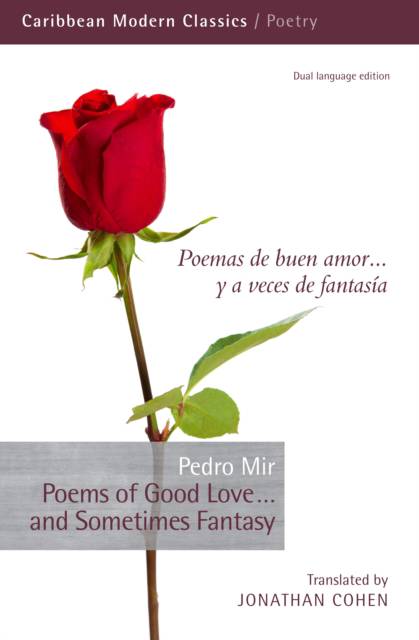
Je cadeautjes zeker op tijd in huis hebben voor de feestdagen? Kom langs in onze winkels en vind het perfecte geschenk!
- Afhalen na 1 uur in een winkel met voorraad
- Gratis thuislevering in België vanaf € 30
- Ruim aanbod met 7 miljoen producten
Je cadeautjes zeker op tijd in huis hebben voor de feestdagen? Kom langs in onze winkels en vind het perfecte geschenk!
- Afhalen na 1 uur in een winkel met voorraad
- Gratis thuislevering in België vanaf € 30
- Ruim aanbod met 7 miljoen producten
Zoeken
Omschrijving
Jonathan Cohen's translation of Poemas de buen amor... y a veces de fantasía shows another side entirely of Mir's work to that seen in Contracanto a Walt Whitman / Countersong to Walt Whitman: intensely political in the Countersong, sensual and erotic in Poems of Good Love. There is a challenge that the translator rises to in making English language poems that are truthful to the deliberately opaquer language of this collection in comparison to the communicative clarity of Mir's more overtly political collections. Here, Mir sets himself the task of writing about love in a way that is truthful to the Marxist historical materialism he embraced, in contrast to what he saw as the conventions of love poetry where love is seen as some kind of disembodied spiritual experience. As the introduction by Silvio Torres-Saillant makes clear, there were negatives as well as positives that followed from the task Mir set himself. It is obvious that fifty years ago (1969), feminism had not yet penetrated Mir's Latin American Marxism.
Specificaties
Betrokkenen
- Auteur(s):
- Vertaler(s):
- Uitgeverij:
Inhoud
- Aantal bladzijden:
- 70
- Taal:
- Spaans
- Reeks:
Eigenschappen
- Productcode (EAN):
- 9781845235604
- Verschijningsdatum:
- 30/03/2023
- Uitvoering:
- Paperback
- Formaat:
- Trade paperback (VS)
- Afmetingen:
- 133 mm x 210 mm
- Gewicht:
- 90 g

Alleen bij Standaard Boekhandel
+ 47 punten op je klantenkaart van Standaard Boekhandel
Beoordelingen
We publiceren alleen reviews die voldoen aan de voorwaarden voor reviews. Bekijk onze voorwaarden voor reviews.









